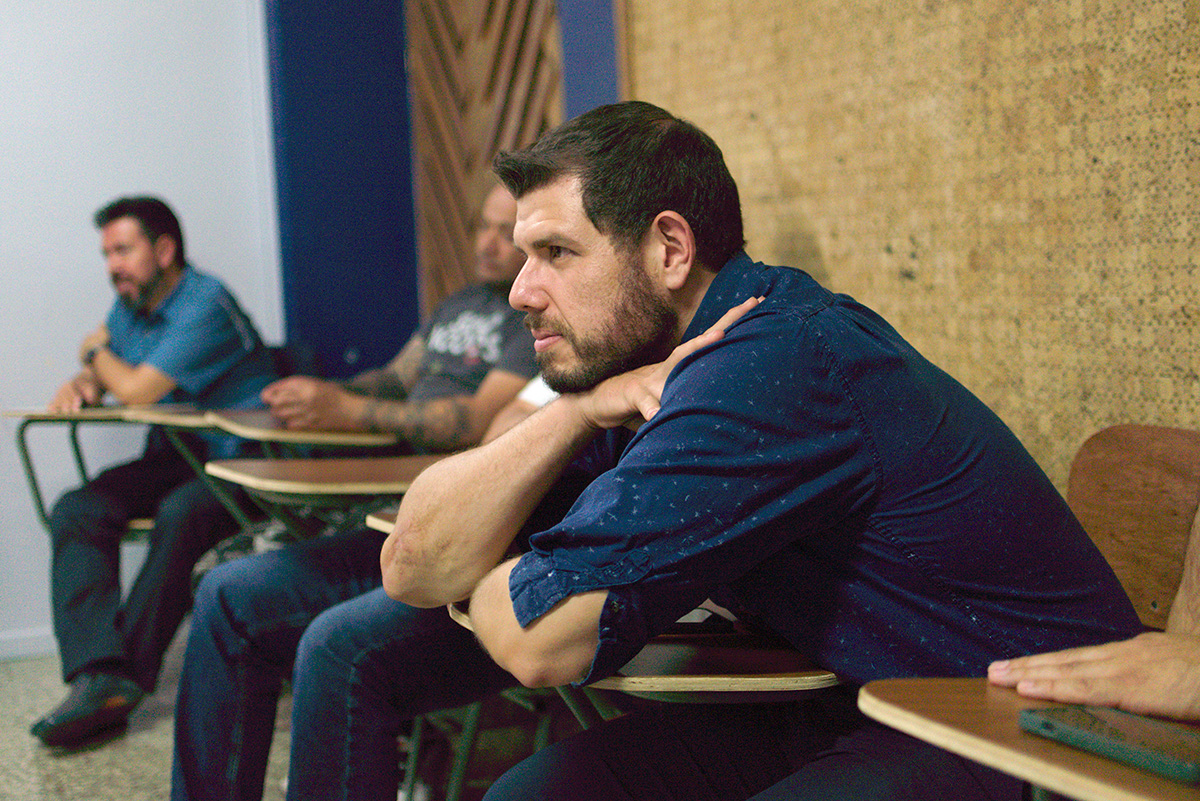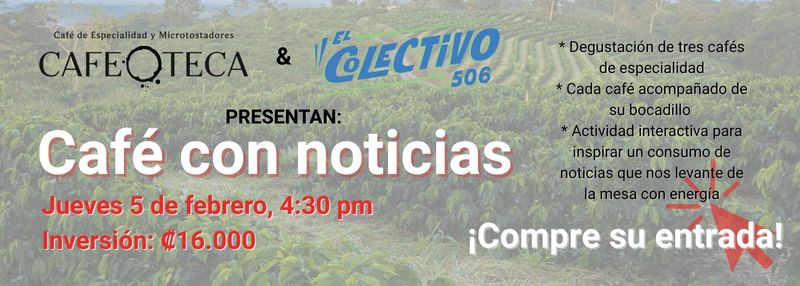At six in the evening, already dark, the smell of coffee greets me when I’m still four steps away from the door of Classroom 10 at the Municipality of Escazú. Inside is a group of men, some laughing, others waiting. I greet them and we chat about this and that before we get started. At 6:30, the session kicks off: the municipality’s positive masculinities personal development group, facilitated by the WEM Institute. I’ve been attending for the past five years.
Starting on May 19, 2019, at the Escazú Civic Center, men have had a space to talk for the first time in this Central Valley canton: to share what they have not told anyone, what has been aging in their chests for years. A group to express their emotions, their personal situations, in a safe environment, in a space where they are not judged, even if they have problems managing anger or identifying their emotions..
This group is the Municipality of Escazú’s first foray into the field of positive masculinities, in collaboration with the WEM Institute—a non-governmental organization with 20 years of experience in the development of a methodology for personal growth, the promotion of positive masculinities, and a culture of peace. In this project, the Municipality of Escazú pays the WEM professionals’ fees, provides the physical space, and coordinates participant recruitment. The Institute is hired to provide the qualified personnel and therapeutic methodology.
Esteban Rodríguez, the psychologist who coordinates the effort, explains that the project also includes holding workshops and talks at schools, as well as individual psychological care.
For me as a participant, the project has brought positive change to my life. But as a journalist, I was curious to know more about how this initiative—still rather unusual in our country—came to be. Why did a municipality get involved in this initiative? How did it start and develop this space? And what changes has it achieved?
Shoulder-to-shoulder with those who lead the project, but now wearing my journalist hat, I began to study the program with new eyes.
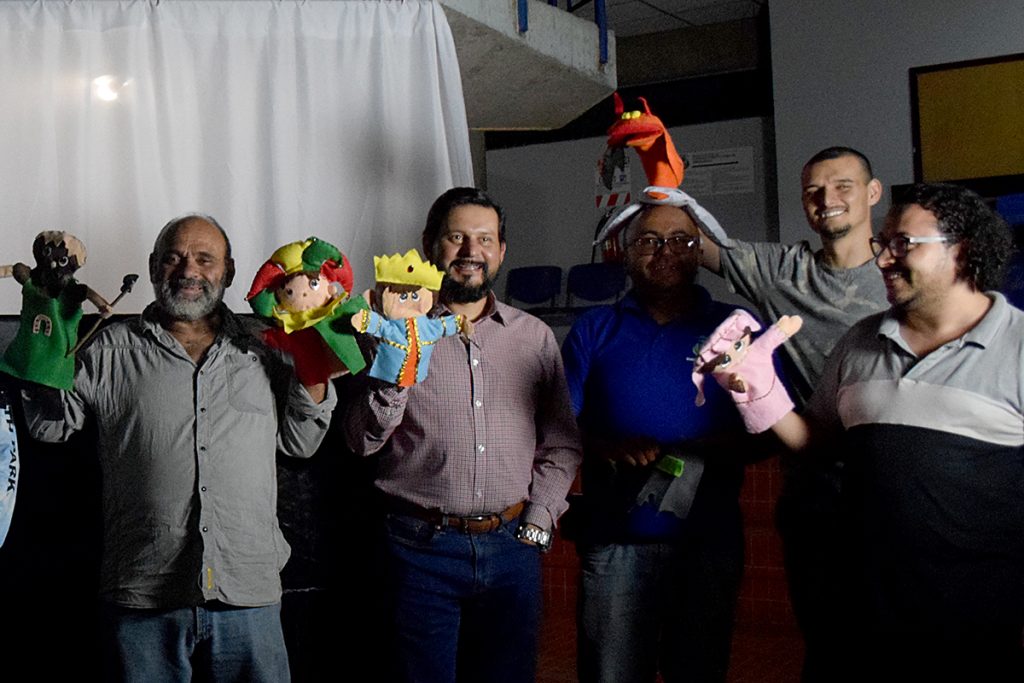
Gender violence: a problem in Escazú and nationwide
According to the statistics of the Observatory of Gender Violence against Women and Access to Justice of the Judiciary, 2023 saw a total of 18 femicides in Costa Rica and 37 deaths of women occurred that are still pending classification. [Editor’s note: femicide is defined in Costa Rica as the murder of a woman “because of her status as a woman, usually at the hands of her current or past partner, or of another man with whom she does not have or had a relationship… normally the product of increasing violence and an unequal relationship between women and femicidal men.” The Interinstitutional Subcommittee on Femicide Prevention is the entity that determines whether or not the death of a woman should be classified as femicide.] So far this year, authorities have recorded four femicides and 19 violent deaths of women.
Meanwhile, according to data from the 911 emergency system, women are the victims of 95% of domestic violence reports in Costa Rica. According to the records of the Violence Observatory, 79% of alleged aggressors are men and 79% of the alleged victims are women.
Claudia Girón Cano is the coordinator of the social development area of the Municipality of Escazú. She explains that, according to data collected by the municipal police and the National Institute of Statistics and Census (INEC), this canton, despite its many resources, has one of the highest violence rates in the country. Although Escazú is a canton full of contrasts, and with high levels of development and investment, Claudia says that it’s also characterized by its agricultural roots and traditional views of masculinity.
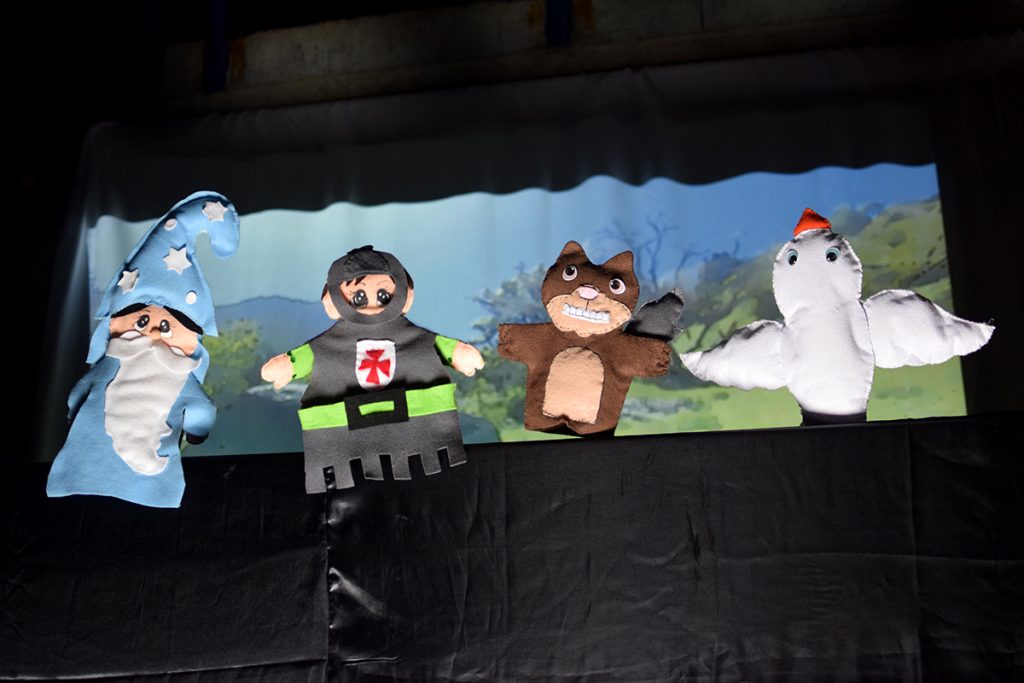
A municipal response
Claudia attributes the origin of this project to the changes that have been taking place within the Municipality of Escazú since 2008. That’s when the canton created its Women’s Care Office, which evolved into the Area of Gender Equality and Equity. She says that the positive masculinities project has expanded the initial approach to feminist struggles, in which the work focused on women as a response to structural inequality and gender gaps.
The concept of gender work goes beyond working only with women,” says Claudia. “It’s like holding women, and only women, responsible for change, for possible improvements in society. When we involve all people and actors in society, we begin to regulate our responsibilities and visions differently.”
To develop the project, the Municipality turned to the WEM Institute in 2019. In the first stage, the Municipality prepared a contract for which there were only two bidders, and the WEM Institute met all the requirements. For the second stage, a contract was drawn up in the Integrated Public Procurement System, which the WEM Institute also won.
Alvaro Campos Gaudamuz, President of the WEM Institute, explains that the WEM runs 24 groups in different parts of the country, including in prisons.
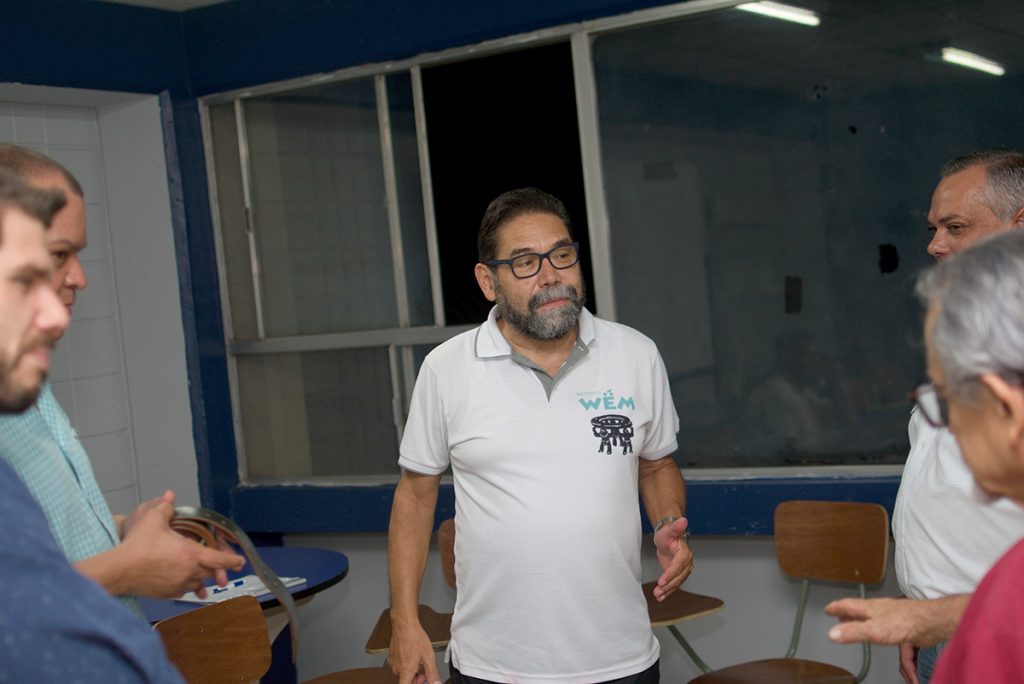
“The main objective [of the WEM] is to work with men of all ages to build a masculinity that is not sexist and that is not violent, that promotes the best of themselves,” says Álvaro. “He learns to communicate with his family, to be effective, to take care of himself and people, to share responsibility for household chores, to communicate and express the emotions that men find so difficult.
“When men have a problem, we keep it to ourselves,” he adds. “We keep quiet about it. We are interested in men connecting with themselves, with the deepest part of their life experiences, so that in some way they heals their wounds and find another way of being a man.”
Esteban, the psychologist who works with the WEM group in Escazú, says that the prevention of violence against women is addressed from a perspective of positive masculinities. That is, the project works with men to help them understand and regulate their own emotions, learn to manage their behaviors, and avoid falling into episodes of violence.
“They learn to regulate their emotions and not fall into patriarchal mandates that have been instilled in them for years,” Esteban explains.
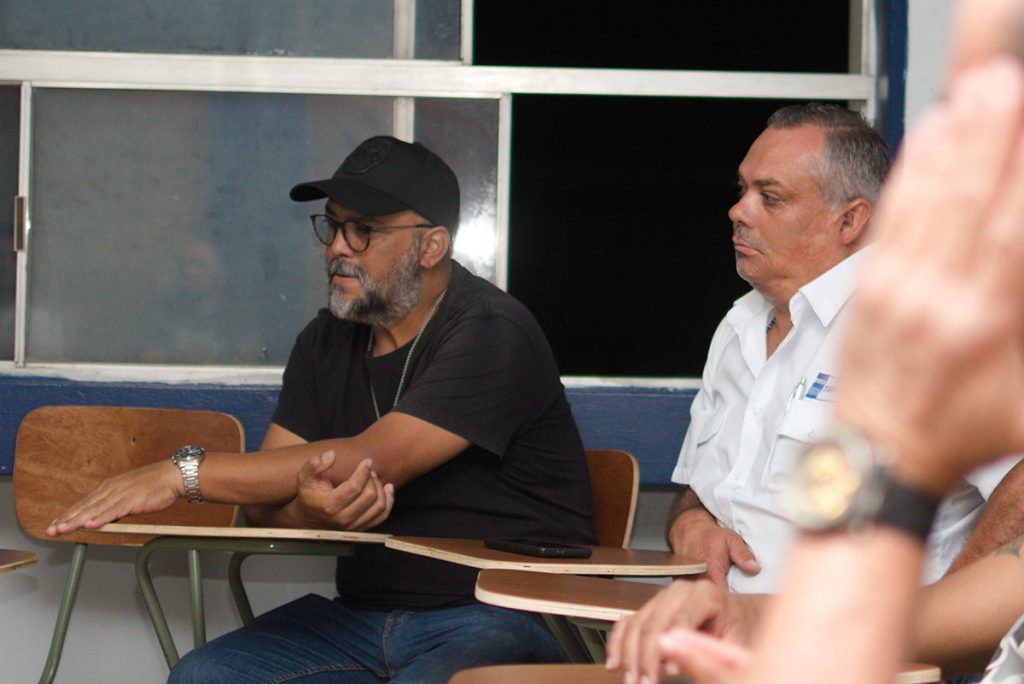
For Dennis Redondo, another psychologist at the WEM Institute who coordinated the project from 2019 to 2023, men don’t respond as well to the invitation to talk when violence is the first topic on the agenda. This connotation generates or labels them with responsibilities that many do not want to assume.
However, when the group focuses on promoting health with an integral approach to human development, this work ends up preventing violence, even if the impact is indirect.
“So instead of working on, for example, preventing violence in romantic relationships— well, let’s work on assertive communication,” says Dennis. “That does bring men together. What happens is that the [direct] approach to violence produces guilt. The men of this generation do not feel called upon by that type of characterization.”
Dennis explains that the methodological principle is to “respect man in his own words, listen to him without judging him, make him aware of himself and responsible for what he does and the consequences, and begin to grow as a person.” This model of popular community education has two fundamental pillars: meaningful learning, which occurs through a relationship with daily reality, and learning by discovery.
“He has to realize for himself that he is sexist, if he is; that he uses violence, if he uses it. He has to realize this for himself, with no one else telling him. The methodology allows this to happen,” says Dennis.
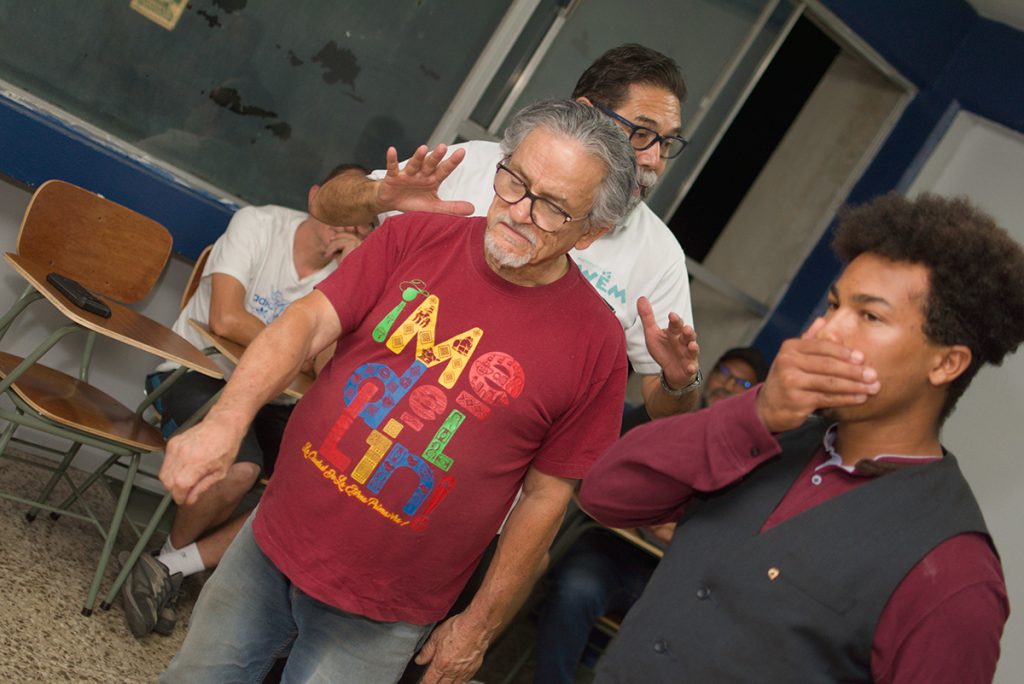
Although all sessions have the same structure, each one is different. After each member introduces himself, a representative of the Red de Hombres, or Men’s Network—the national community whose membership is achieved when a man has participated in the WEM groups for more than 45 sessions, or, about a year—might offer a brief reflection. The therapeutic session begins from there. The psychologist asks if anyone is struggling with a particular situation, a participant begins his story, and only the psychologist can ask questions.
Each session is confidential. We can talk freely about our emotions and situations in the first person. Once the intervention ends, other members of the group can share whether they identified with the story of the man who spoke first. “That happened to me”… “I’ve already gone through that”… “I’m going through something similar.”
On their admission survey, the participants from the Escazú positive masculinities group said they were dealing with emotional problems, anger management, jealousy, breakups, and grief, as well as challenges in relationships with children.
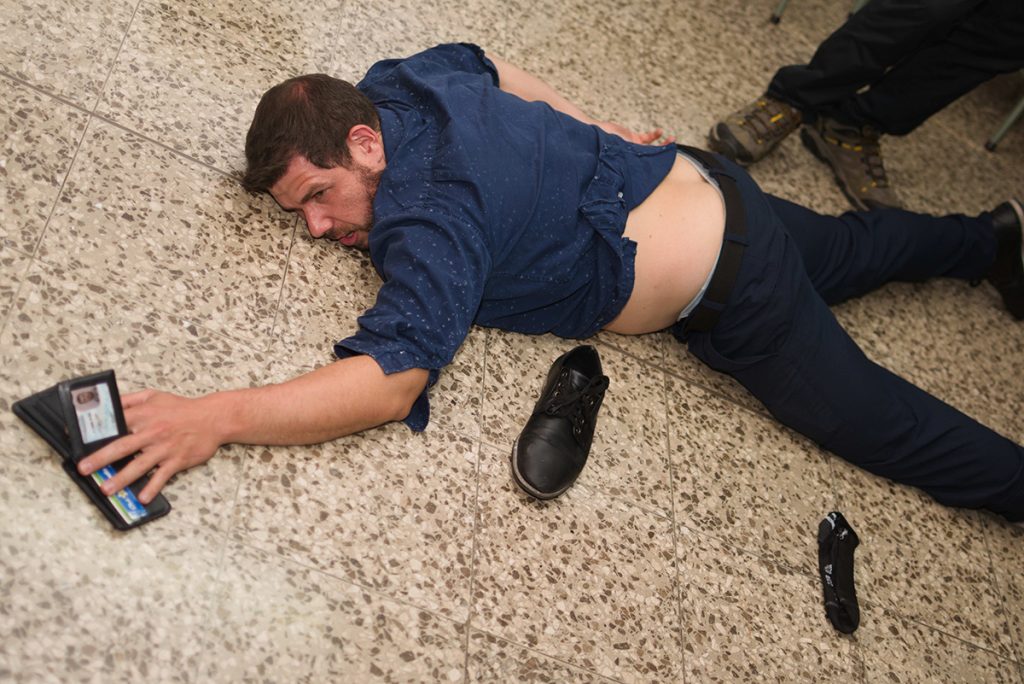
What has been achieved?
Dennis Redondo says that participation in the group has been successful for a project of this nature. A total of 219 men have been treated in 250 sessions from 2019 to December of 2023, “which, in terms of psychological health, cannot be overlooked,” he says.
Alvaro defines the program’s success through both attendance and feedback from the men: he says that this program has been successful because the men go to the group, they feel good, they modify behaviors, and their families report feeling better with these men.
Despite these qualitative assessments and the number of men served since the project began, Claudia, from the Municipality, explains that it is difficult to assess the impact of the program on the statistics of gender violence in the canton, since the root of this violence is structural and multi-causal. Escazú is permeated and influenced by a complex national reality.
However, the men’s stories help show what the group has meant to its participants.
One of the users of the service, Mainor Montero, 53, describes his experience in positive terms. He says that before he started attending the Escazú group, he considered himself “a badly behaved kid.” He came to the sessions thanks to his wife, who asked his brother to convince him to attend.
Mainor says that the biggest contribution that the support group has made to his life is to provide him with tools: responsibility towards himself, anger control, self-control, and impulse control, to name a few. He says other important tools he’s learned are the use of assertive words to communicate with your loved ones and set limits.
“One day I told my oldest son, ‘Look. I love you with my soul. Do what you want in your life’,” says Mainor. “If he does well tomorrow, I’m going to feel very happy; if he’s not doing well, it’s in his hands… That has been a very important tool for me, knowing how far I should go and not going around trying to fix everyone’s problems, which is what I used to do.”
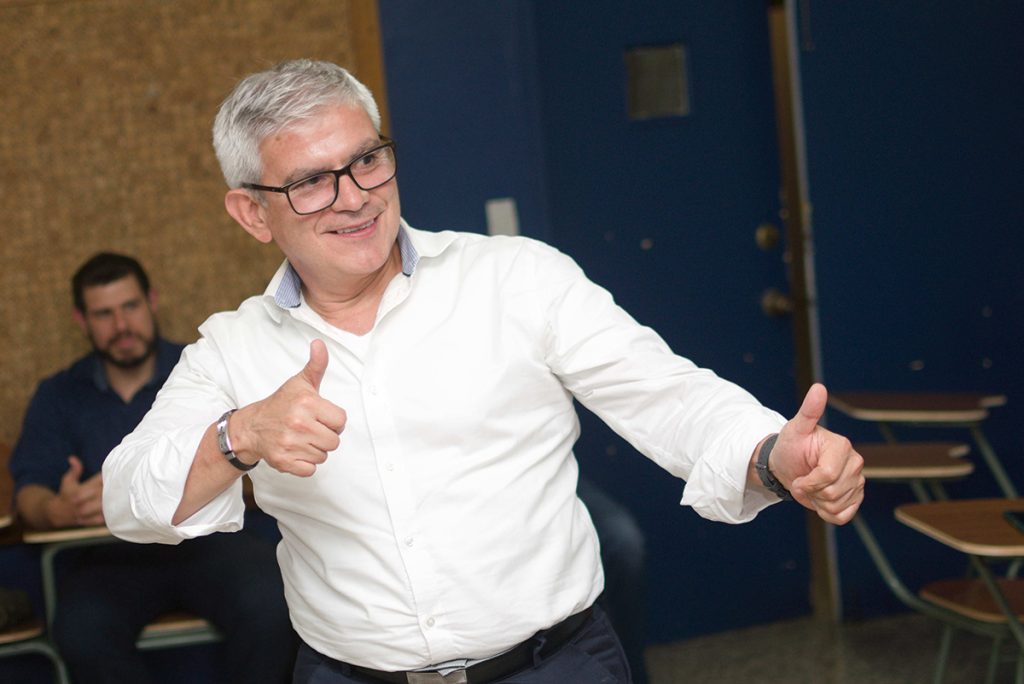
Raúl Barrios Marín, 34, says that his 1.5 years in the personal development group in Escazú has had an impact on both him and his family: “it has helped me understand the emotions, how they are navigated, how they are experienced, fears and helplessness that I have been carrying since I was little.”
Raúl says that now he asks himself questions to identify his emotional state.
“How do I feel? Why do I feel that? What now?” he says. “By connecting with emotions, I have been connecting with solutions, because before my reactions were anger, resentment… I was angry with life.
“I have realized that the only person responsible for my reactions is me. This is a matter of commitment to break down machismo, to stop being the alpha male who can do everything and responds with violence in the street,” Raúl continues. “Also, [I’ve learned about] the importance of talking about how I feel. Before coming to WEM, I didn’t talk at all—until I exploded.”
He says that now, in a safe, empathetic environment, emotions do not accumulate the way they used to. He’s identified patterns and behavior that he can change and improve with himself, his family, his partner, and his work.
“That has given me a feeling of fulfillment, of seeing that it can be changed,” says Raúl.
For now, the future is up to local governments
Like the Escazú group, there are many others throughout the country. Álvaro, the director of WEM, says that this fact shows that the experience can be replicated. All groups, regardless of their location or target population, share a single methodology that brings together the principles of popular education, the psychology of emotions, principles of psychodrama and body expression, which is experiential and participatory. This methodology is the same, but it is adapted to each circumstance and what it means to be a man in each community.
When it comes to the Escazú group, “we want the project to grow more, so that it extends to other districts of the canton,” he says.
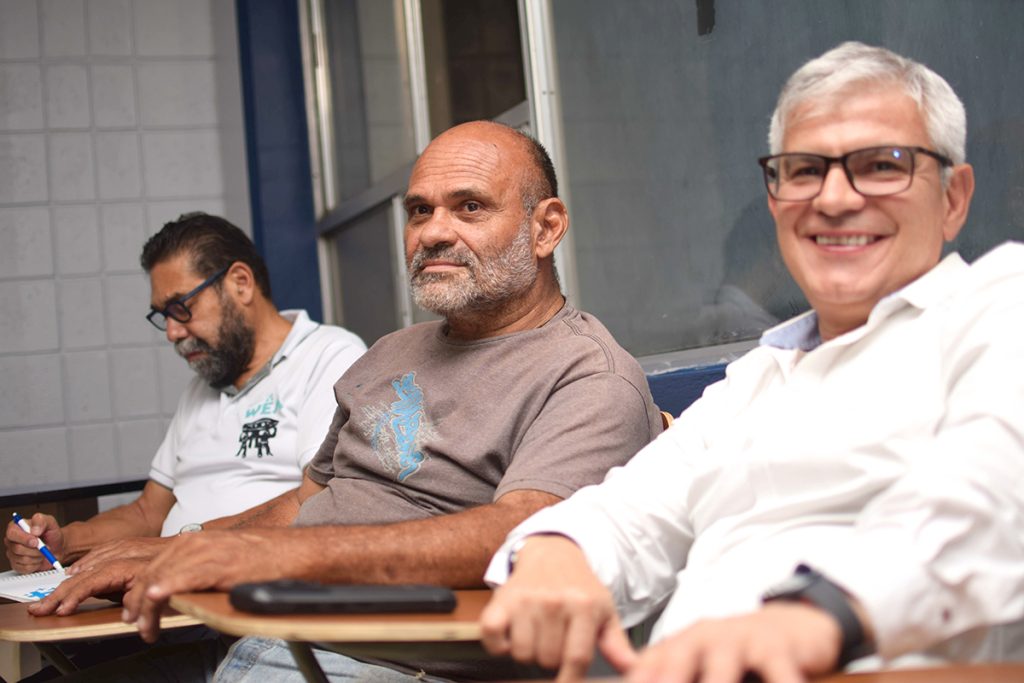
Claudia says that one lesson learned by the Municipality through these years of implementing the program with WEM is how important it is for administrative and political leaders to respect the technical staff that develops processes. Striking that balance has helped the program thrive.
One of the biggest limitations to the growth of the program? Budget. While the groups need only a physical space and a psychology professional trained in the methodology, that professional must be paid. When there is no support from an institution, WEM users pay a fee that’s below market rates for individual psychological therapy sessions; however, this still transfers the cost to the men who need the service.
However, Claudia points to political will as the biggest limitation—and adds that it’s easy to solve when there is a mutual understanding between technical and political entities of the importance of investing in positive masculinities.
Although the WEM Institute participated in drafting of axis 2 of Costa Rica’s National Violence Prevention Program, project leaders say that the construction of positive masculinities lacks a budget as a national policy. For now, the example of social investment in this issue is being set on the municipal level.
“A national level policy protects the entire state and all its inhabitants on this issue,” says Dennis, “but it is so global and so difficult to execute that it ends up failing to protect anyone. A local policy is easier to execute, such as that of the municipality, but in a way, it’s discriminatory because it leaves out residents of other municipalities.”
According to statistics from the Violence Observatory, the rate of femicides is highest in Costa Rica’s periphery and other under-resourced areas. Leaving this topic up to municipalities to handle could simply exacerbate this trend.
“Which is better? I think the municipal [policies] are better, because at least they are implemented. It’s better than nothing. In the world of what should be, a national policy would be better,” Dennis concludes.
Alvaro says that those local governments that have a growing social area are investing in aspects beyond the construction of infrastructure, which in some cases includes addressing positive masculinities. The modern approach to violence prevention is to work with men. The global agenda comes from Convention on the Elimination of All Forms of Discrimination against Women; the United Nations subsequently created in Declaration 3510 in the year 2017, to which Costa Rica subscribes.
This statement highlights the need for governments to invest in working with men for the prevention of violence, and encourages working with men of all ages to develop strategies in building positive masculinities. At the World Conferences in Rio de Janeiro, India and Rwanda, men from around the world have discussed how to achieve positive and equal masculinity. This is how awareness begins to be created from the highest level, and local governments that have greater vision are investing in this field.
Alvaro points out that working with men does not mean taking resources away from women, children, older adults, or any other social group.
“Society has at least two majority genders. We have to work with the male gender,” he adds. “We believe in the ability of men to change, to improve and to be allies, together with women, in the construction of a more egalitarian society. In addition, men can improve, be better people, partners, parents, friends and citizens to the extent that we build positive masculinity. We must invest in that.”
All these reflections echo within me as today’s session ends in Room 10 of the Civic Center. As a final exercise, the facilitators have asked us each to answer this question in a single word or phrase: what will I take away from today’s session?
Today, this is what I take away: we are the missing piece. Men are part of the solution.


